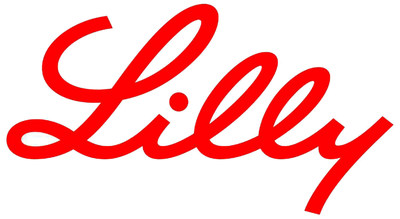- Patients treated with mirikizumab met the primary endpoint of clinical remission and all key secondary endpoints compared to placebo - LUCENT-1 is the first and only Phase 3 study of an anti-IL-23p19 monoclonal antibody to demonstrate reduced bowel urgency in moderate to severe ulcerative colitis - Safety results in this study were consistent with that of the previous mirikizumab study in ulcerative colitis and studies with the anti-IL-23p19 antibody class
|
INDIANAPOLIS, March 16, 2021 /PRNewswire/ -- Eli Lilly and Company (NYSE: LLY) announced today that mirikizumab met the primary and all key secondary endpoints in LUCENT-1, a 12-week Phase 3 induction study evaluating the efficacy and safety of mirikizumab for the treatment of patients with moderate to severe ulcerative colitis (UC). LUCENT-2, a multicenter, randomized, double-blind, placebo-controlled maintenance study of mirikizumab in patients who have completed the 12-week LUCENT-1 induction study is ongoing. UC is a chronic inflammatory disease of the large intestine, also referred to as the colon, that affects the lining of the colon and may cause small sores, or ulcers, to form.i This inflammation can cause abdominal pain, frequent and urgent trips to the bathroom, bloody stools and incontinence.1 UC can cause significant and debilitating disruptions in daily life. Millions of people live with UC globally.2 "There is a continued need for additional treatments that can provide people living with ulcerative colitis relief from their most challenging symptoms," said William J. Sandborn, MD, Professor of Medicine, and Chief, Division of Gastroenterology, University of California San Diego. "Results of this study provide further clinical evidence of the potential for mirikizumab to become the first anti-IL-23p19 biologic for the treatment of ulcerative colitis." In LUCENT-1, mirikizumab met the primary endpoint of clinical remission at Week 12 compared to placebo (p<0.0001). Clinical remission is met when inflammation of the colon is controlled or resolved, leading to normalization or near-normalization of symptoms such as stool frequency and bleeding. Mirikizumab also achieved all key secondary endpoints compared to placebo at Week 12 in patients with UC with highly statistically significant p-values, including reduced bowel urgency, clinical response, endoscopic remission, symptomatic remission and improvement in endoscopic histologic inflammation. In addition, mirikizumab demonstrated rapid improvement in patient symptoms as early as four weeks after initiating treatment. Mirikizumab also reduced symptoms among patients who had previously not responded to or stopped responding to biologic and/or Janus kinase (JAK) inhibitor therapies. In the 12-week placebo-controlled induction study of LUCENT-1, the incidence of treatment-emergent adverse events (AEs) and serious AEs among patients treated with mirikizumab was consistent with that of the previous Phase 2 mirikizumab study in UC and studies with the anti-IL-23p19 antibody class. The most common AEs included nasopharyngitis, anemia and headache for both placebo and mirikizumab-treated patients. "People living with UC often struggle to effectively manage recurring flare ups of the disease," said Lotus Mallbris, M.D., Ph.D., vice president of immunology development at Lilly. "With these positive results, we look forward to the continuation of the maintenance study through 52 weeks in hopes of providing a new option to people living with UC." The full LUCENT study results, including data from LUCENT-2 and LUCENT-3, will be disclosed at a future congress or publication. "Ulcerative colitis can be debilitating and unpredictable for the hundreds of thousands of people living with this chronic disease," said Dr. Caren Heller, Chief Scientific Officer for the Crohn's & Colitis Foundation. "We're encouraged by these promising results for a potential new treatment that may help provide symptom relief and remission." About Mirikizumab About the LUCENT Clinical Trial Program The program began in 2018, with full results from the induction and maintenance studies anticipated in early 2022. About Ulcerative Colitis About Eli Lilly and Company This press release contains forward-looking statements (as that term is defined in the Private Securities Litigation Reform Act of 1995) about mirikizumab as a potential treatment for patients with ulcerative colitis and other diseases and reflects Lilly's current beliefs and expectations. As with any pharmaceutical product, there are substantial risks and uncertainties in the process of drug research, development, and commercialization. Among other things, there can be no guarantee that future study results will be consistent with study results to date, that mirikizumab will prove to be a safe and effective treatment or that mirikizumab will receive regulatory approvals or be commercially successful. For further discussion of these and other risks and uncertainties, see Lilly's most recent Form 10-K and Form 10-Q filings with the United States Securities and Exchange Commission. Except as required by law, Lilly undertakes no duty to update forward-looking statements to reflect events after the date of this release. 1 Overview of Ulcerative Colitis. Crohn's and Colitis Foundation Website. https://www.crohnscolitisfoundation.org/what-is-ulcerative-colitis/overview. Accessed February 2021.
SOURCE Eli Lilly and Company |
||||||
Company Codes: NYSE:LLY |





